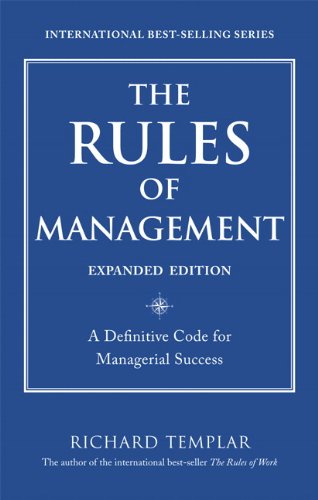My dad then turned to me and said, “I have to fire this worker.
I remember when I was in high school and my dad showed me a picture on the front page of the Charlotte Observer (NC) of construction workers on scaffolding moving a giant organ into a church. He was excited to show me because these were his employees; he was a regional manager for a scaffolding and shoring company. The more he looked, the more he realized that something was out of place. My dad then turned to me and said, “I have to fire this worker.” He pointed to the picture of the construction worker in the center of the platform where I squinted my eyes to “find the difference.”
Looking closer, I found what my dad was talking about. The worker was not wearing his safety harness, thus, not being tied into the scaffolding. Monday morning, my dad fired the worker who was not following the safety policies of the company. Even though my dad was not at work, he saw a behavior that severely affected the presentation of his company and the workers as well as the insurance company.

Alex hard at work in the office.
Yes, this is a grim story to tell about management when, in this blog, I am supposed to inform my friends, family and coworkers about the importance of managers and their role in a business. This story is simply to show that anything can happen at any time, and a manager has to be prepared. But how does a manager prepare for his or her job? Who writes the handbook for a manager at any company? When one thinks about a business or job, a handbook for how to manage does not exist. The skills you gain over the years always come from other managers and others who evaluate you and give feedback. When employees are promoted to managers, the addition of more guides, policies, and manuals will cover the desk but not resources about working the staff or taking care of your own self in the workplace.
 Fortunately, Richard Templar has written a book titled The Rules of Management: A Definitive Guide for Managerial Success. This book was formatted and designed for the people. It is not superfluous or full of information about watching budgets and writing reports. It strays away from the hard skills and technical occupations of a manager and focuses on the soft skills like interpersonal relations, keeping staff and yourself happy, supporting your team and listening to others to name a few. Split into two sections, managing yourself and managing others, Rules of Management takes all the common sense skills you wish you had at your fingertips at all times and puts one rule on every two pages. Read the whole book at once, refer to your favorite rule, or strive to incorporate a new one into your everyday leadership style.
Fortunately, Richard Templar has written a book titled The Rules of Management: A Definitive Guide for Managerial Success. This book was formatted and designed for the people. It is not superfluous or full of information about watching budgets and writing reports. It strays away from the hard skills and technical occupations of a manager and focuses on the soft skills like interpersonal relations, keeping staff and yourself happy, supporting your team and listening to others to name a few. Split into two sections, managing yourself and managing others, Rules of Management takes all the common sense skills you wish you had at your fingertips at all times and puts one rule on every two pages. Read the whole book at once, refer to your favorite rule, or strive to incorporate a new one into your everyday leadership style.
For example, in the section about managing the team, rule number 28 says, “Adapt your style to each team member.” At first read, one may think that you have to completely change what you are doing and cater to the staff’s need. This is not what this “rule” is trying to tell a manager. Every employee has a different style of completing tasks as well as receiving feedback. For some, one can simply present a problem in black and white and it makes perfect sense. Others need more compassion and emotional feeling when dealing with an issue. Being able to tweak what you already know to appeals to a particular person greatly improves the ability of a leader to connect with the staff and build rapport. Tiring it may be, but in the long run, you, the manager, will continue to form the team and understand each person’s reactions in a productive way.
Managing the team is important but taking care of you is a must too. In the second half of the book where Templar focuses strictly on the manager, the rules provide a pathway to navigate the emotionally tough and physically exhausting position that a manger fulfills. Rule 75 says, “Go home.” Sounds easy, right? A manager who is emotionally involved with employees and the job find this to be very difficult. Knowing when to end the day, shut the computer off, and wait for tomorrow to discuss staff issues poses a big challenge especially in a workplace like High Trails where living and working go hand in hand. If you do not take a break, decompress, and reflect on the day’s or week’s event, you will become unproductive. Just take care of it tomorrow.

Even Alex eventually goes home to recharge.

Alex’ Office Chair
So, you have an idea about the book and think that a book of rules will solve all your problems? Most likely, it will not. However, by using Templar’s Rules of Management, any manager can remind him/herself about the common sense thinking that creates a successful team. Take the rules little by little and hold on to them. Show that you can be a manager instead of telling people you read a new book about how to manage. Knowing that you do not know everything already puts you ahead of the game. Once you take some time to modify your style, thus modifying the team’s, success, efficiency and happiness will come. Read the book, come back to it again and again, and continue to change what you think you know.
At High Trails Outdoor Science School, we literally force our instructors to write about elementary outdoor education, teaching outside, learning outside, our dirty classroom (the forest…gosh), environmental science, outdoor science, and all other tree hugging student and kid loving things that keep us engaged, passionate, driven, loving our job, digging our life, and spreading the word to anyone whose attention we can hold for long enough to actually make it through reading this entire sentence. Whew…. www.dirtyclassroom.com

Comments are closed.